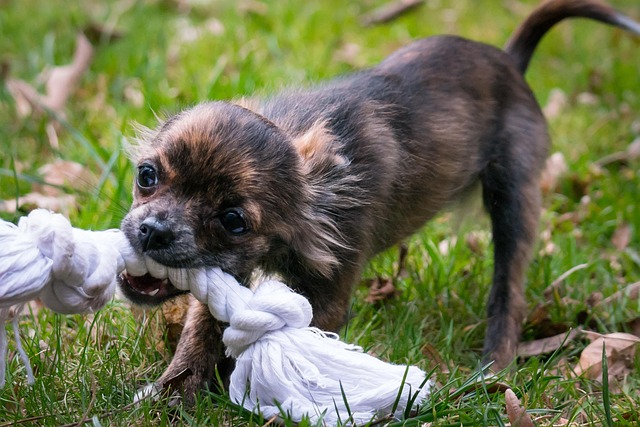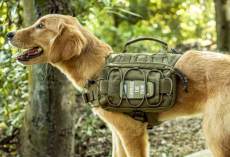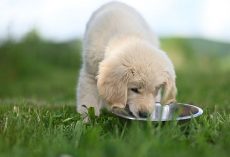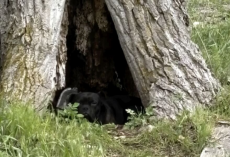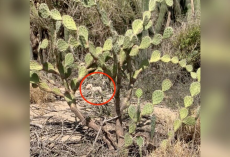If your puppy is chewing everything in sight — the furniture, your shoes, your sleeves, your ankles — chances are the teething stage has officially begun.
Teething is uncomfortable, confusing and instinct-triggering for puppies, but while you can’t fast-forward through it, you can make the process a whole lot easier on both of you.
Here’s what teething actually is, what signs to watch for, and the best ways to soothe your pup (while saving your house from becoming a chew toy).
What Is Teething — And When Does It Start?
Teething is the natural process of growing new teeth, and puppies begin it surprisingly early.
- Around 2 weeks old: Puppies start getting their first 28 “baby” teeth, also called deciduous teeth.
- By 6 weeks: All baby teeth have usually erupted.
- Around 6 months: The second set — 42 adult teeth — begin growing in.
The exact timing depends on the breed, so don’t panic if your puppy’s schedule is slightly different.
When Do Puppies Lose Their Baby Teeth?
Most puppies start losing their baby teeth around 3 to 4 months old, and the process continues until about 6 to 8 months, when all of their adult teeth should be in place.
Common Puppy Teething Symptoms
You’ll probably notice a few tell-tale signs, including:
- Lots of drooling
- A little bleeding (often seen on toys)
- Random tiny teeth appearing around the house
- Endless chewing and mouthing — including on you
All totally normal!
How to Help a Teething Puppy
Your puppy isn’t being “bad”—she’s just uncomfortable. Here’s how to support her through the soreness and keep your belongings intact.
1. Offer Plenty of Safe Chew Toys
Chewing helps soothe the gums and gives puppies a way to explore the world.
Choose:
- Soft but sturdy rubber toys
- Toys with varied textures
Avoid:
- Anything harder than a tooth (antlers, bones, stones, etc.)
- Frozen towels that can thaw, rip and be swallowed
2. Use Frozen Treats for Relief
Cold helps numb sore gums. Try:
These keep your pup busy and comfortable.
3. Redirect — Never Punish
Your puppy isn’t misbehaving on purpose. She’s hurting.
Skip the yelling and instead:
- Gently redirect her to an appropriate chew toy
- Reward her when she chooses the right thing
Positive reinforcement is always the fastest, kindest path.
When Does Teething End?
Most puppies finish teething by 6 to 8 months, when all 42 adult teeth are in.
Check your pup’s mouth regularly to make sure:
- No baby teeth are lingering
- No adult teeth are growing in crooked or overlapping
- There are no fractured or discolored teeth
If anything looks off, contact your vet — dental issues are easiest to fix early.
Once the teething journey is over, you’ll have a much more comfortable pup and (hopefully) much safer furniture. Hang in there — both of you will make it through! 🐶🦴
We independently pick all the products we recommend because we love them and think you will too. If you buy a product from a link on our site, we may earn a commission.

